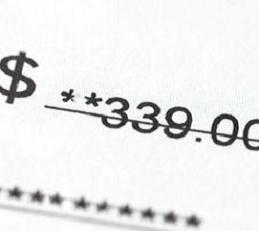Bank definition economics
What is bank in economics? Is a bank a financial institution? A bank is a financial institution licensed to receive deposits and make loans. Banks may also provide financial services such as wealth management, currency exchange, and safe deposit boxes. A commercial bank is where most people do their banking , as opposed to an investment bank.
Commercial banks make money by providing loans and earning interest income from those loans.
Banking is one of the key drivers of the U. It provides the liquidity needed for families and businesses to invest in the future. Companies use loans to start hiring immediately to build for future demand and expansion. Bank rate is the rate charged by the central bank for lending funds to commercial banks. Description: Bank rates influence lending rates of commercial banks.
Higher bank rate will translate to higher lending rates by the banks. In order to curb liquidity, the central bank can resort to raising the bank rate and vice versa. Also See: Base Rate,.
A central bank is a financial institution given privileged control over the production and distribution of money and credit for a nation or a group of nations.
In modern economies , the central bank. A Central Bank is an integral part of the financial and economic system. They are usually owned by the government and given certain functions to fulfil. These include printing money, operating monetary policy, the lender of last resort and ensuring the stability of financial system.
The World Bank is an international organization dedicated to providing financing , advice , and research to developing nations to aid their economic advancement. The bank predominantly acts as an. As more people withdraw.
Economic growth – sometimes simply “growth” – typically refers to GDP growth. A country’s gross domestic product or GDP is a measure of the size and health of its economy. It is the total value of goods and services produced over a specific time period.
Bank Definition : A bank being a financial institution creates wealth by deposits. Deposits are created by lending funds either directly or indirectly into market and reclaiming with interests or profits. A role of bank is importance in financial system for any country, they are exceedingly regulated by the central government or national bank. Economics topic From Longman Business Dictionary bank money ˈbank ˌmoney ECONOMICS BANKING money that is held by banks , a part of the MONEY SUPPLY Central bank money has been allowed to grow beyond the target of. Money is any good that is widely used and accepted in transactions involving the transfer of goods and services from one person to another.
A bank loan is when a bank offers to lend money to consumers for a certain time period. As a condition of the bank loan, the borrower will need to pay a certain amount of interest per month, or per year. This is a loan which uses an asset as collateral.
A good example is a mortgage loan.
According to Samuelson, “Every Central Bank has one function. It operates to control economy, supply of money and credit. Development bank , national or regional financial institution designed to provide medium- and long-term capital for productive investment, often accompanied by technical assistance, in poor countries. Gross domestic product or GDP is perhaps the most talked about economic concept.
It measures the size of a country’s economy. This guide explains how GDP is measure as well as which things GDP doesn’t capture. The Development Economics Vice Presidency (DEC) increases understanding of development policies and programs by providing intellectual leadership and analytical services to the Bank and the development community.
DEC is the premier research and data arm of the World Bank. Under the leadership of the.

Comments
Post a Comment